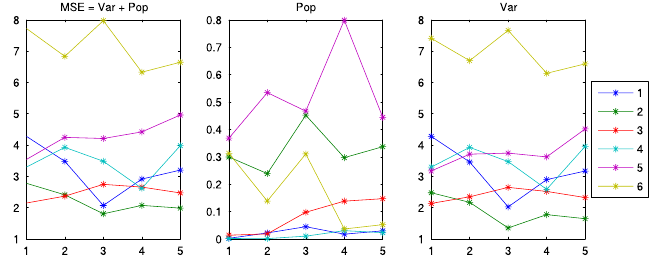The wisdom of crowds in one mind : How individuals can simulate the knowledge of diverse societies to reach better decisions
Heiko Rauhut and Jan Lorenz
Journal of Mathematical Psychology (2011)
Research: Opinions Emotions Social Influence
Abstract
The joint knowledge of many diverse individuals can outperform experts in estimation and decision - making problems. This wisdom of the crowd has been demonstrated in different societal areas such as internet search engines, political elections or stock markets. Recently, psychologists argued that humans may even simulate a diverse society in their own minds by drawing different answers from their brain (Vul & Pashler, 2008). The underlying idea is that individuals can access different knowledge areas in their brain, whose joint evaluation yields better estimates than their separate consideration. This article presents a mathematical treatment of the wisdom of crowds and two potential mechanisms to quantify the wisdom of crowds in one mind. The implications of both methods are analyzed and applied to new experimental data (N = 144), which contain five consecutive estimates from the same individuals. The theoretical and empirical analysis demonstrates limitations of the wisdom of crowds in one mind: Asking oneself several times is on average less powerful than asking only one other individual. This is due to the smaller diversity of estimates of similar individuals and the larger average bias to which they converge. Further, individuals cannot perform independent draws from an ‘‘internal distribution’’. Hence, there may be other mechanisms at work such as talking oneself into believing initial guesses or eliciting progressively wilder ones. ©2010

